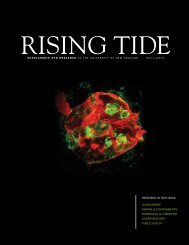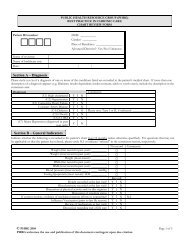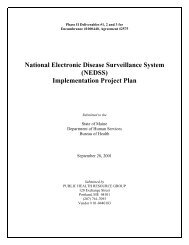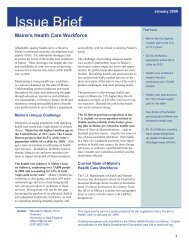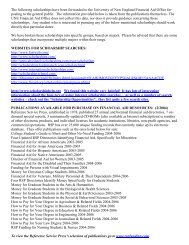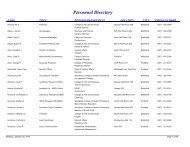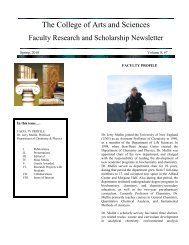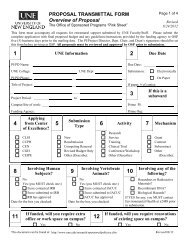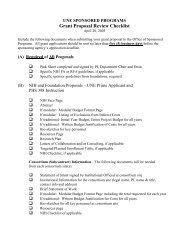Acute Flaccid Paralysis Accompanying West Nile Meningitis Ahmed ...
Acute Flaccid Paralysis Accompanying West Nile Meningitis Ahmed ...
Acute Flaccid Paralysis Accompanying West Nile Meningitis Ahmed ...
Create successful ePaper yourself
Turn your PDF publications into a flip-book with our unique Google optimized e-Paper software.
Epidural Spinal Cord Compression Secondary to Stage IV Esophageal<br />
Squamous Cell Carcinoma<br />
Arolli, T, D.O.<br />
St. Michael’s Medical Center, Newark, NJ<br />
Introduction: The incidence of epidural spinal cord compression (ESCC) can only<br />
be estimated as many cases are asymptomatic. However, it is important to<br />
recognize new cases of ESCC promptly because it may lead to irreversible loss of<br />
neurologic function. Our patient presented with ESCC after being recently<br />
diagnosed with stage IV esophageal squamous cell carcinoma.<br />
Case: A 60-year-old gentleman with past medical history of alcohol abuse and<br />
hypertension presented to our hospital with complaint of backache, bilateral leg<br />
pain, and generalized weakness for three days. He admitted to a fifteen pound<br />
weight loss over the past three months but denied loss of appetite. Patient has<br />
had a Cat Scan (CT) of the abdomen which indicated the lesion at<br />
esophagogastric junction, a pancreatic body lesion, right adrenal enlargement, and<br />
a pancreatic body lesion which were new findings. Esophagogastroduodenoscopy<br />
was performed and indicated the presence of an ulcerating mass at distal<br />
esophagus. Pathology result has come back as stage IV esophageal squamous<br />
cell carcinoma. Oncology consultation was obtained, and patient was discharged<br />
with arrangements for an outpatient follow up. He was readmitted two weeks later<br />
with a complaint of inability to move his lower extremities bilaterally, unable to<br />
stand or walk, with associated urinary incontinence and dribbling. Magnetic<br />
resonance imaging (MRI) of the lumbar spine indicated the presence of bony<br />
metastatic lesions, 2.6 x 1.1 cm epidural mass lesion at the level L4-L5<br />
compressing the thecal sac and nerve roots from posterior aspects. Patient was<br />
diagnosed with ESCC and started on IV decadron with complete bed rest.<br />
Radiation oncology consultation was obtained, and patient underwent a few<br />
sessions of RT (radiation treatment). He was subsequently cleared for discharge<br />
with arrangements for outpatient follow up, with RT as outpatient.<br />
Discussion: While many cases of ESCC are asymptomatic, it is important to<br />
promptly diagnose them and initiate immediate treatment in order to avoid<br />
complications and preserve or improve neurological functioning. The most<br />
frequent symptom at presentation is back pain. The majority of cases arise from<br />
epidural extension of vertebral body metastases.



